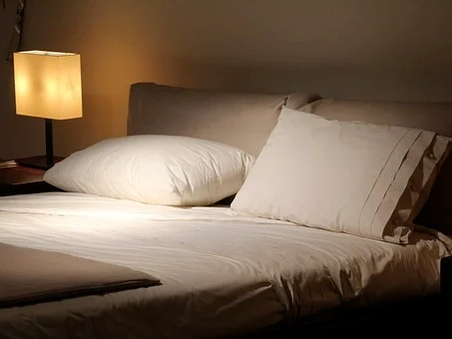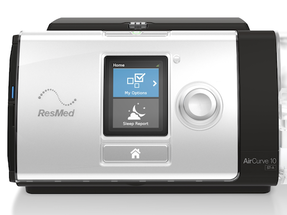Conserving Your Energy |
|
|
As the disease progresses and your muscles weaken, everyday activities like getting up, getting dressed, bathing, eating, and walking can take a lot of energy. When living with ALS, it is important to learn to conserve your energy so you can continue to do the things that matter most.
|
|
Recharge with Sleep
In addition to improving your mood and overall outlook on life, getting a good night’s sleep can give you more energy for the day ahead. People living with ALS can struggle with sleep for a variety of reasons, including feeling anxious, getting comfortable, difficulty breathing, and needing to go to the bathroom at night. There are a variety of strategies and interventions that can help you get a better night’s sleep.
Consume Enough Calories
|
Calories are what give us energy. And people living with ALS often struggle to consume enough calories. The resulting weight loss can lead to accelerated muscle deterioration, weakness, low energy, and other issues.
If you notice that you are losing weight, taking longer at meals, getting more tired when chewing, avoiding certain foods, or coughing or choking on food or liquid, notify your ALS clinic or medical team. If you are proactive and develop strategies to eat well and stay hydrated, you can experience a better quality of life with greater strength, energy, and independence. Learn about nutrition and ALS. |
Get Breathing Support
|
When diaphragm and trunk muscles weaken, people living with ALS can struggle to breathe at night, and experience shortness of breath during the day. The harder it becomes to breathe, the more energy your muscles spend breathing.
Fortunately, there are respiratory devices that can help you sleep better, feel better, and have more energy. These devices are noninvasive, which means you can take the mask on or off whenever you’d like. |
|
A bilevel, also known as a BiPAP, is a breathing machine used primarily during sleep that delivers pressurized air to assist you with both inhaling and exhaling. You can also use a bilevel while awake to give your diaphragm a break. If you have a portable ventilator for noninvasive use, you can use it as a bilevel at night and switch it to sip-and-puff mode during the day to take intermittent support breaths.
Your ALS clinic team or neurologist should monitor your breathing and let you know when you qualify for and can benefit from these devices. Learn more about respiratory equipment in our ALS Respiratory Guide.
Your ALS clinic team or neurologist should monitor your breathing and let you know when you qualify for and can benefit from these devices. Learn more about respiratory equipment in our ALS Respiratory Guide.
|
Sign up for our free newsletter to stay up-to-date on new content, equipment, ALS news, resources, and more.
|
Use Assistive Devices
Sitting up, standing up, walking, and transferring from one place to another all require energy. So do daily activities around the home, as well as trips outside of your home. If you are getting fatigued by some of these activities, you can save energy by using a variety of assistive devices:
Talk with the physical and occupational therapists at your ALS clinic about which devices could help you and which home modifications you might be able to make. Most equipment for ALS is covered by insurance. You can also borrow devices at no cost from the loan closet at your local ALS organization.
- Mobility equipment can help you move around safely and with less effort.
- Braces can support your muscles and help you move more efficiently.
- Transfer devices can help you move safely from place to place inside your home.
- Activities-of-daily living devices can help you remain more independent.
- Bathroom equipment can help you stay safe and save energy.
Talk with the physical and occupational therapists at your ALS clinic about which devices could help you and which home modifications you might be able to make. Most equipment for ALS is covered by insurance. You can also borrow devices at no cost from the loan closet at your local ALS organization.
A Note about Exercise
An ALS diagnosis will change the way you’ll need to approach exercise. Overexertion can drain your energy and weaken your muscles. Moderate exercise may be beneficial. Learn about exercise and ALS.
Pace Yourself
It is important to be realistic about what you are capable of doing with your current energy level. If you overexert yourself by trying to do as much as you used to around the house, you may be too exhausted to socialize or do something fun you had planned. By pacing yourself and planning ahead, you can focus your energy on your priorities. Keep in mind that everyday activities may take longer than before.
Try to become aware of whenever you are feeling fatigued—and take breaks to recharge. It is okay to take naps! If you feel tired after getting dressed and eating breakfast, for example, a midmorning nap may be just what your body needs. If you are meeting friends or family in the afternoon, you may want to take a nap after lunch or rejuvenate with breathing support before seeing them.
Also think about any other changes you can make that will help you conserve or use less energy. Are there any home modifications you can make? Can you rearrange things at home so you don’t have to go up stairs as often? Do you have a handicap parking permit that shortens the distance from your car to the store? Are you taking medication that is making you more sleepy or fatigued?
Be good to yourself. And be realistic about what you can do each day. By doing the things that give you energy, conserving the energy you have, and pacing yourself, you will be able to do more of the things that are important to you.
Try to become aware of whenever you are feeling fatigued—and take breaks to recharge. It is okay to take naps! If you feel tired after getting dressed and eating breakfast, for example, a midmorning nap may be just what your body needs. If you are meeting friends or family in the afternoon, you may want to take a nap after lunch or rejuvenate with breathing support before seeing them.
Also think about any other changes you can make that will help you conserve or use less energy. Are there any home modifications you can make? Can you rearrange things at home so you don’t have to go up stairs as often? Do you have a handicap parking permit that shortens the distance from your car to the store? Are you taking medication that is making you more sleepy or fatigued?
Be good to yourself. And be realistic about what you can do each day. By doing the things that give you energy, conserving the energy you have, and pacing yourself, you will be able to do more of the things that are important to you.












